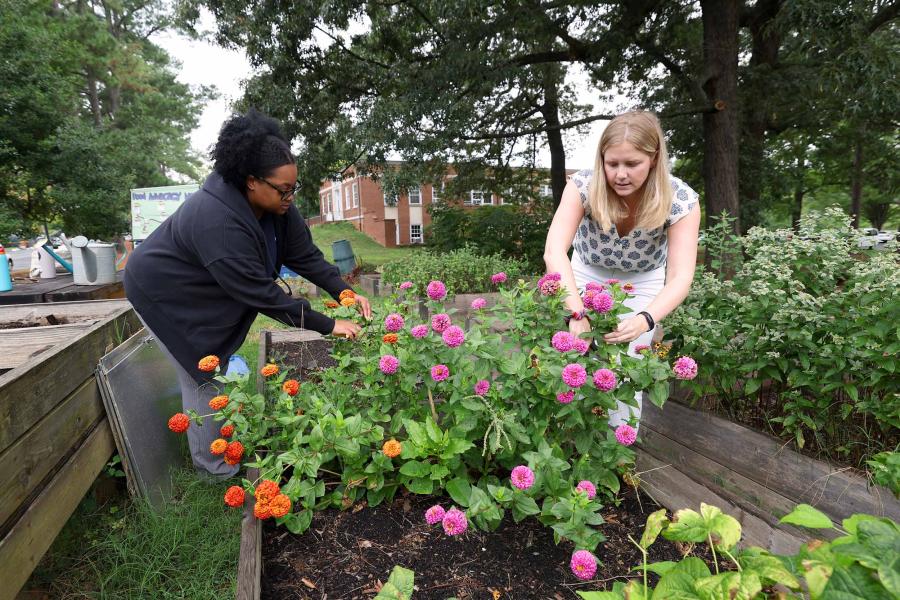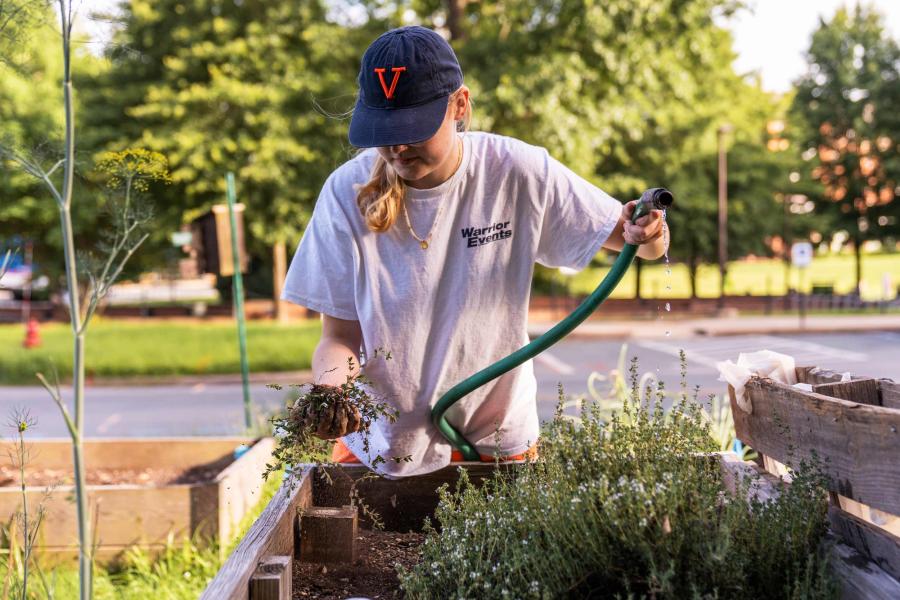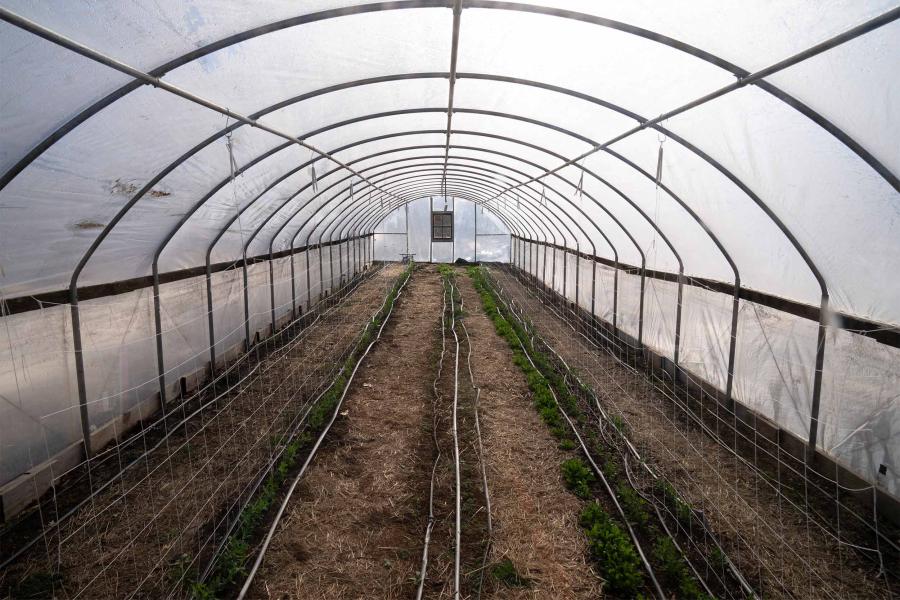Growing your own food offers various benefits, from boosting physical activity to improving access to affordable, healthy food – benefits University of Virginia experts say can lower your risk for long-term illness, including cancer.
“Fresh fruits and vegetables contain a wide variety of vitamins and minerals that our bodies need to function, and it’s important to try and eat a variety of those fruits and vegetables because they contain different amounts and different kinds of nutrients,” UVA Health nutritionist Monica Hershey said. “For example, leafy greens or dark green vegetables can contain a lot of vitamins A and E, which are important for vision and immune function.”
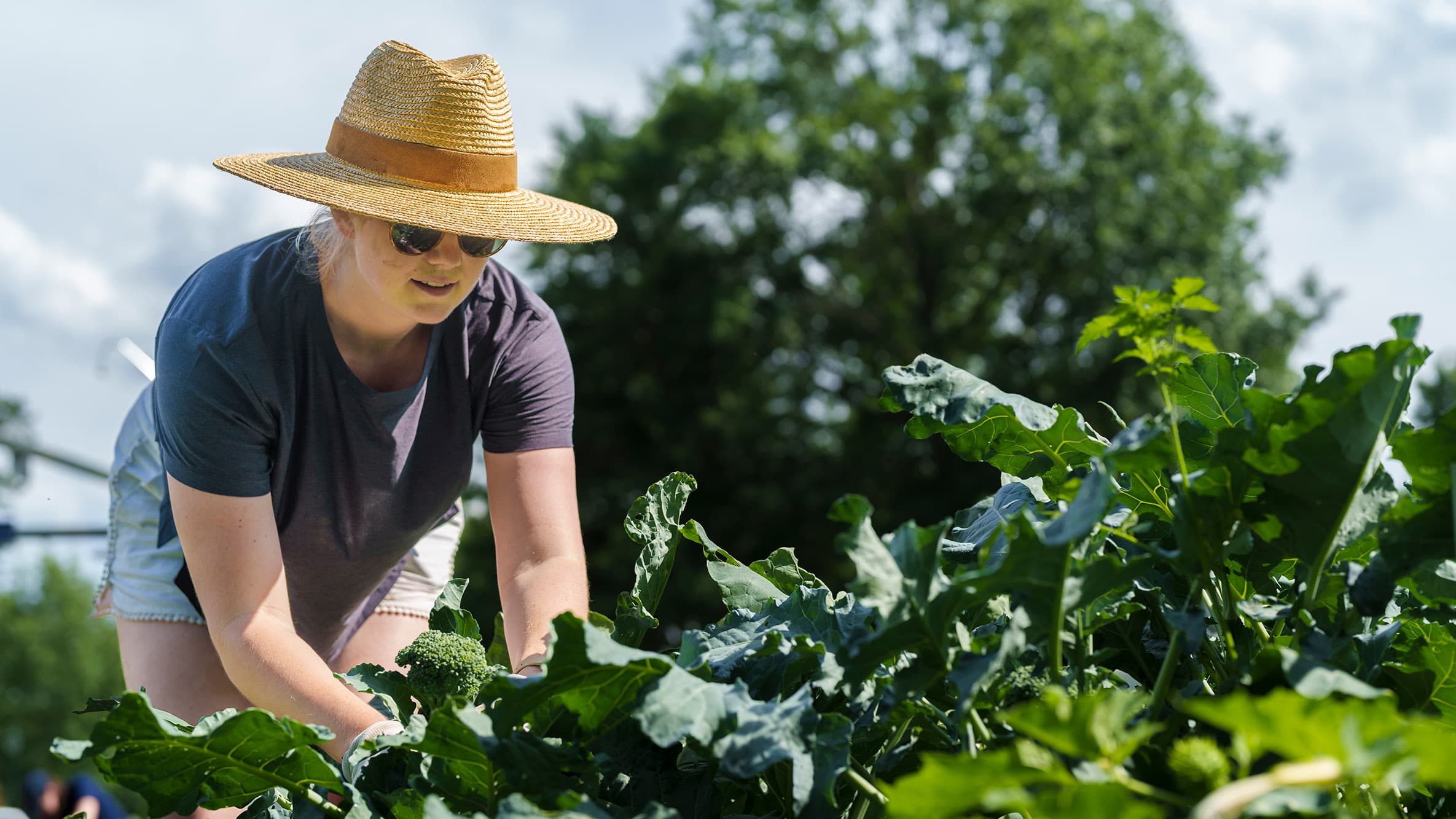
At the UVA Office for Sustainability, Lela Garner oversees the garden. (Photo by Lathan Goumas, University Communications)
That’s the message UVA Cancer Center experts shared with Charlottesville community members during a recent gardening workshop, hosted in collaboration with the local nonprofit Cultivate Charlottesville. The event focused on gardening as cancer prevention. Participants learned how to grow the tomato, jalapeño and cilantro plants provided to them.
The best approach, according to Megan Poole, a registered dietitian at UVA’s Emily Couric Clinical Cancer Center, is variety. “Eat the rainbow,” she suggested, referring to a colorful variety of fruits and veggies.
One source of fresh food in Charlottesville sits at the corner of McCormick and Alderman roads, home of UVA’s community garden. A student group started the garden and the UVA Office for Sustainability manages it with the help of student volunteers.
Lela Garner, sustainability manager for student outreach and engagement for the Office for Sustainability, said she didn’t have much gardening experience before starting her job. Now she confidently wheels carts holding water and identifies plants by their leaves.
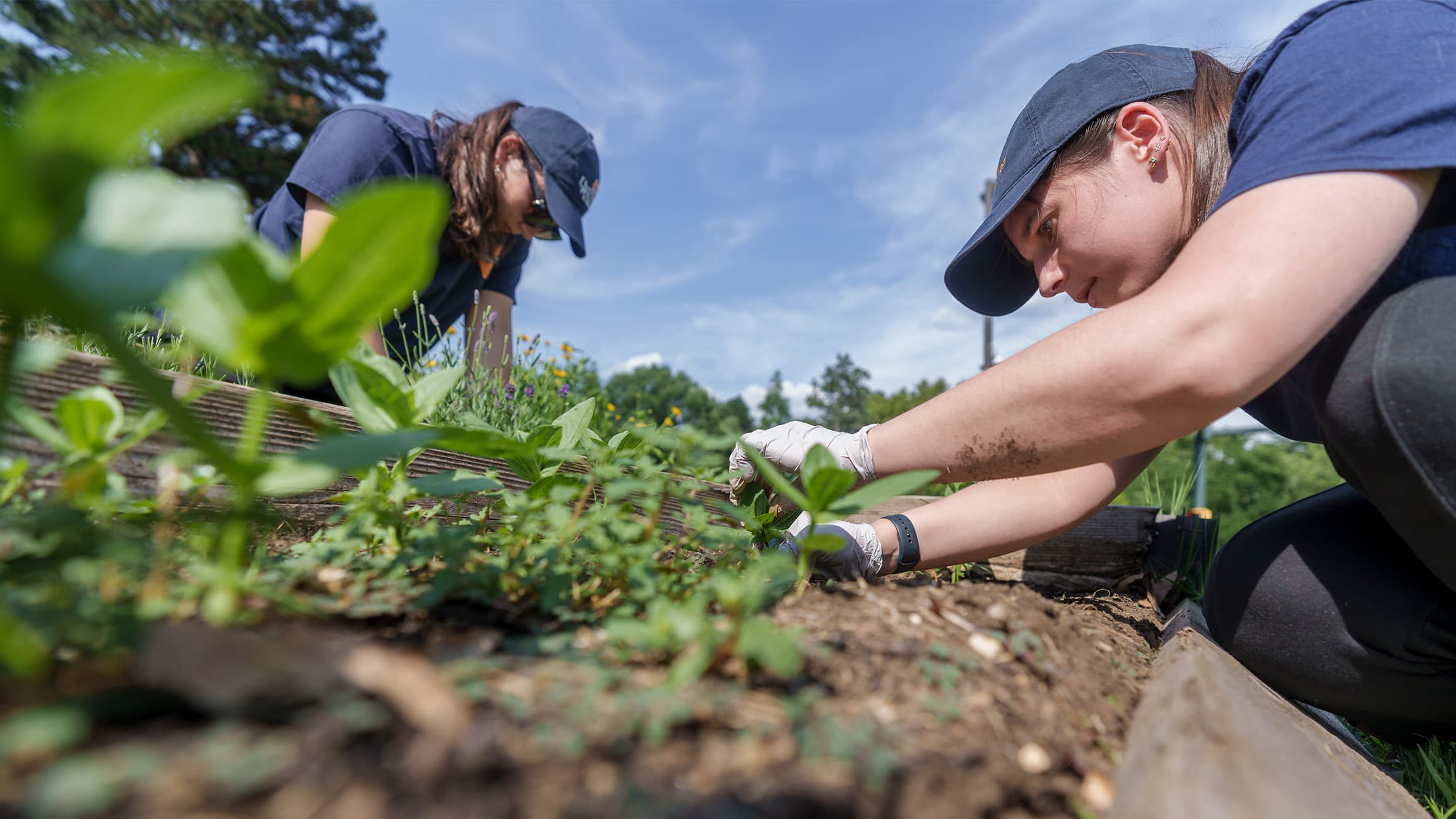
Volunteers from the University and the Charlottesville community maintain the garden year-round. (Photo by Lathan Goumas, University Communications)
“It’s important to give students opportunities to not only learn about sustainable gardening practices and food growth, but also a place to just get their hands dirty in the soil,” Garner said. “Student and staff volunteers talk about how therapeutic it is to pull weeds out of the soil and harvest beets and to see flowers grow, so the opportunity to spend time outside among all of the other competing priorities in life feels really important.”
Diya Gupta is a rising fourth-year UVA student from the San Francisco Bay area, majoring in commerce and global sustainability. This summer, she is interning with the Office for Sustainability’s outreach and engagement team. Her work has included everything from paperwork to getting her hands dirty.
“I’m interested in the nexus of how sustainability shapes higher institutions or businesses, so it’s been really eye-opening to work at UVA, which is a large business in itself,” she said. “It has also been a great way for me to explore new hobbies like gardening.”
Gupta and other volunteers are currently harvesting carrots, bok choy and beets. Soon, strawberries and raspberries will be ready.
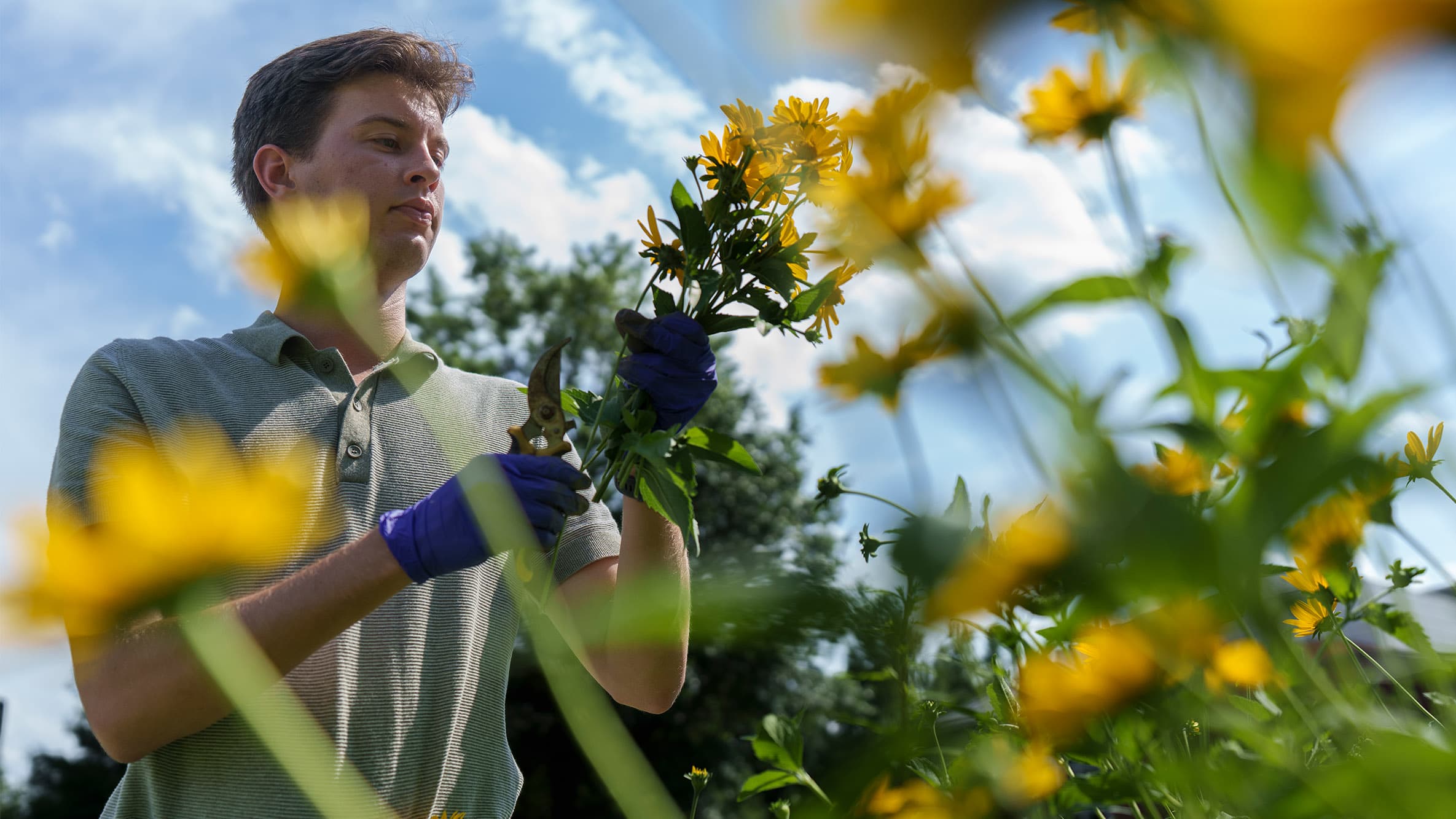
Volunteers maintain dozens of fruits, vegetables, flowers and herb plants year-round to help feed the community. (Photo by Lathan Goumas, University Communications)
A student planted the raspberries last year, and according to Garner, they will yield hundreds, if not thousands, of berries this year.
“We also grow herbs like lavender, rosemary, thyme, parsley, cilantro and mint,” Garner said. “In terms of fruits and vegetables, we have tomatoes, cucumbers, peppers, broccoli, carrots and beets.”
The garden is also home to zinnias and a host of other flowers, allowing volunteers to learn to arrange cut flowers and make bouquets.
The garden supports the University’s sustainability commitments in several ways. It uses compost from Black Bear Composting, the company that processes UVA Dine’s food waste.








